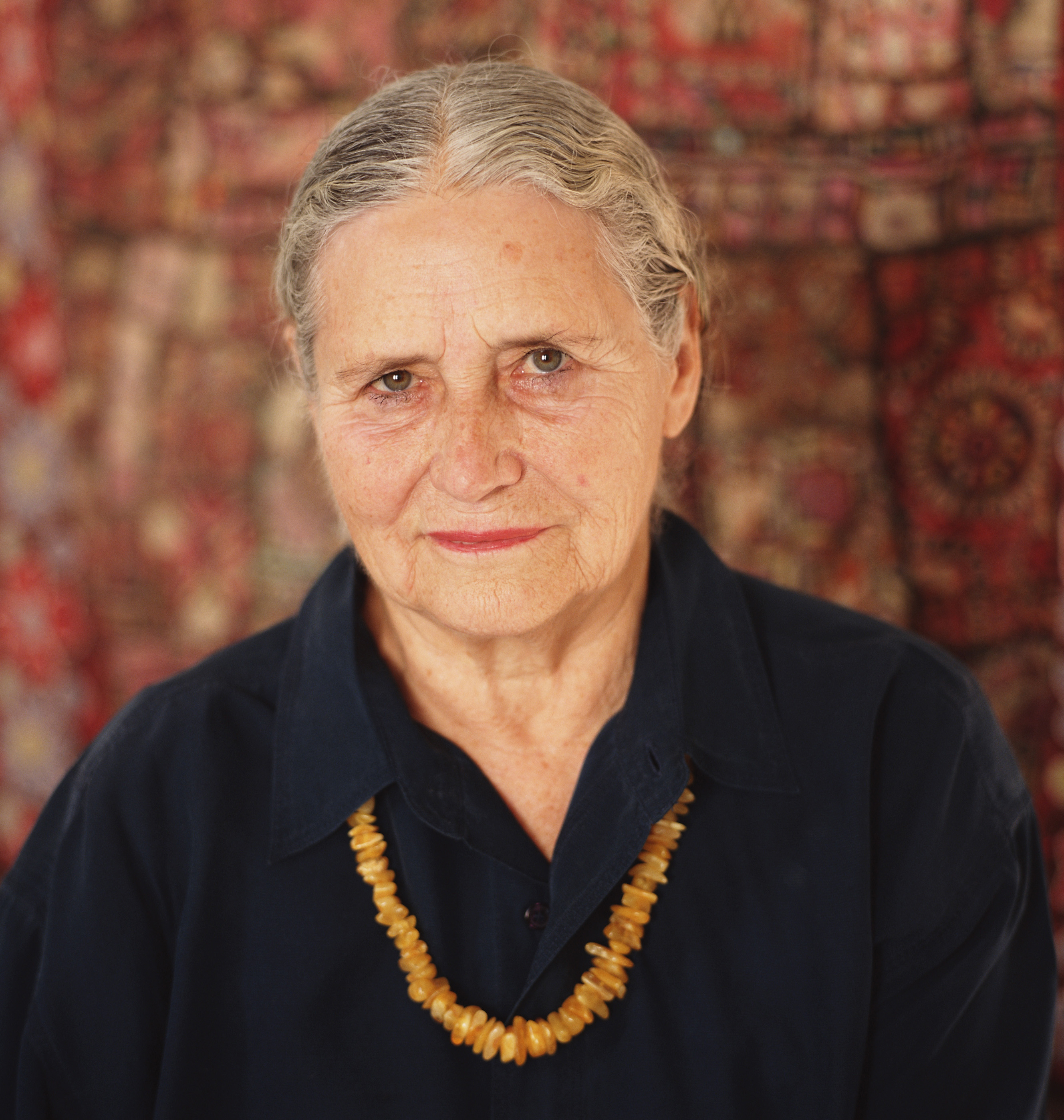Lessing, Doris (1919-2013), was an English writer noted mainly for her novels. Her fiction reflects a cosmopolitan awareness of racial and class inequities. It also shows a deep concern for moral, political, and psychological attitudes and for women’s roles in society. Most of her works stress the complexity of life and deal with humanity’s struggle to understand the world. Lessing received the 2007 Nobel Prize in literature.

Doris May Taylor was born on Oct. 22, 1919, in Kermanshah, Persia (now Bakhtaran, Iran), and grew up in southern Rhodesia. She took the name Lessing from her second husband, Gottfried Anton Nicholas Lessing. She moved to England in 1949. Her first highly praised novel, The Grass Is Singing (1950), and her series of semiautobiographical novels, The Children of Violence (1952-1969), describe the difficulties of white women living in Africa and explore the problems of left-wing anticolonialists.
Lessing’s most famous novel is the feminist political classic The Golden Notebook (1962). This book brilliantly describes the anxiety and confusion that a woman encounters in the modern world. In The Summer Before the Dark (1973), Lessing explored the subject of middle age. The Sweetest Dream (2002) is a political novel set in the 1960’s. Alfred & Emily (2008) is a story about Lessing’s parents in Rhodesia that mixed fiction and memoir. Lessing wrote a series of five philosophical science-fiction novels called Canopus in Argos: Archives (1979-1983). Four short novels were collected as The Grandmothers (2004). Lessing also wrote plays, poems, short stories, and the autobiographies Under My Skin (1994) and Walking in the Shade (1997). A collection of 65 of her essays and book reviews was published as Time Bites: Views and Reviews (2005). Lessing died on Nov. 17, 2013.
